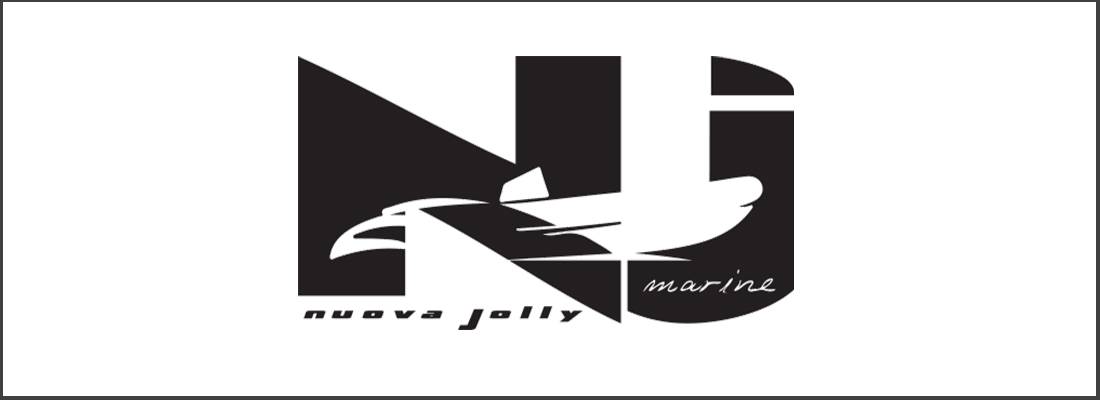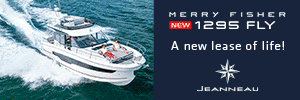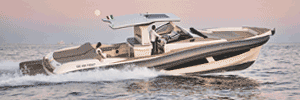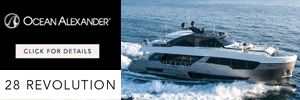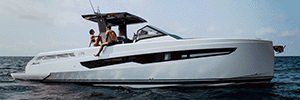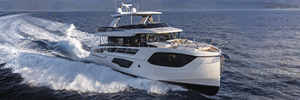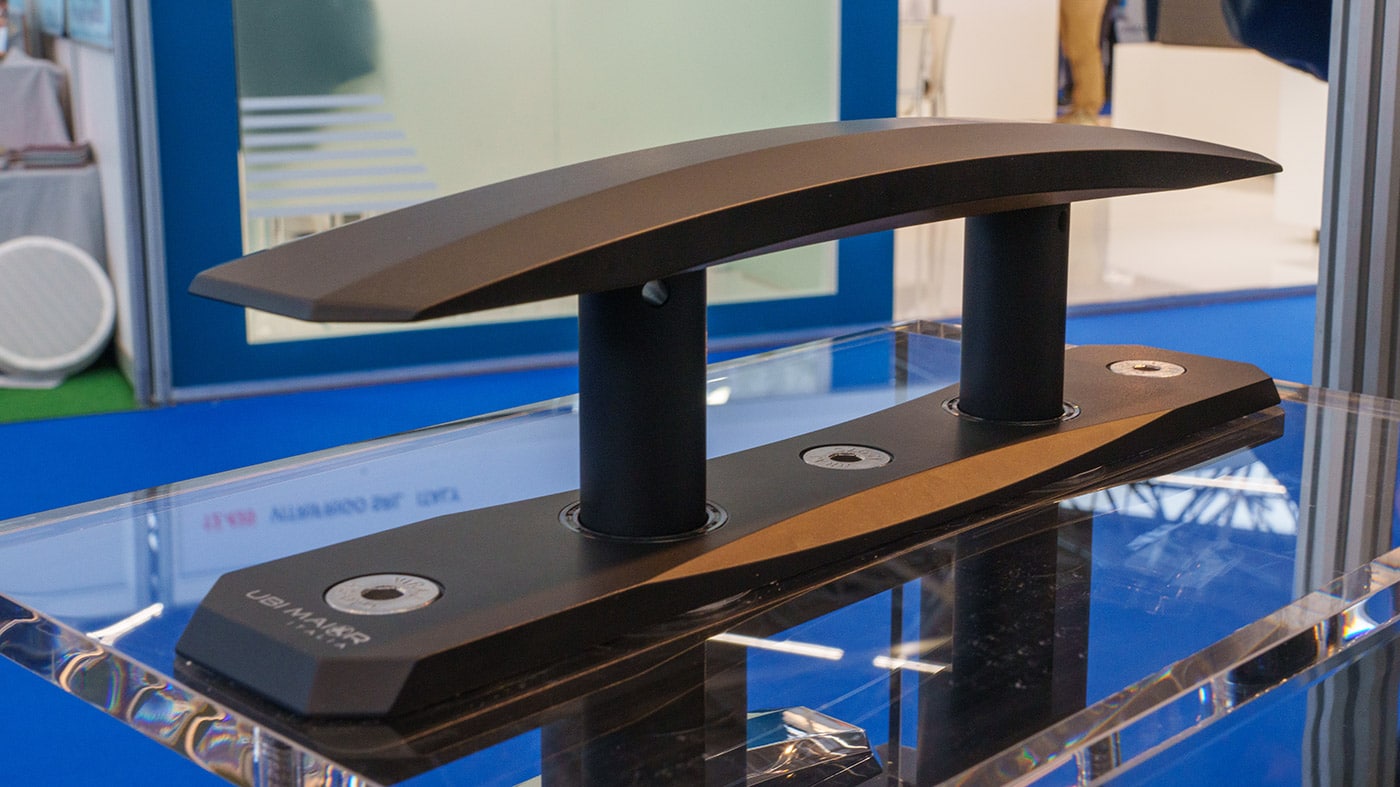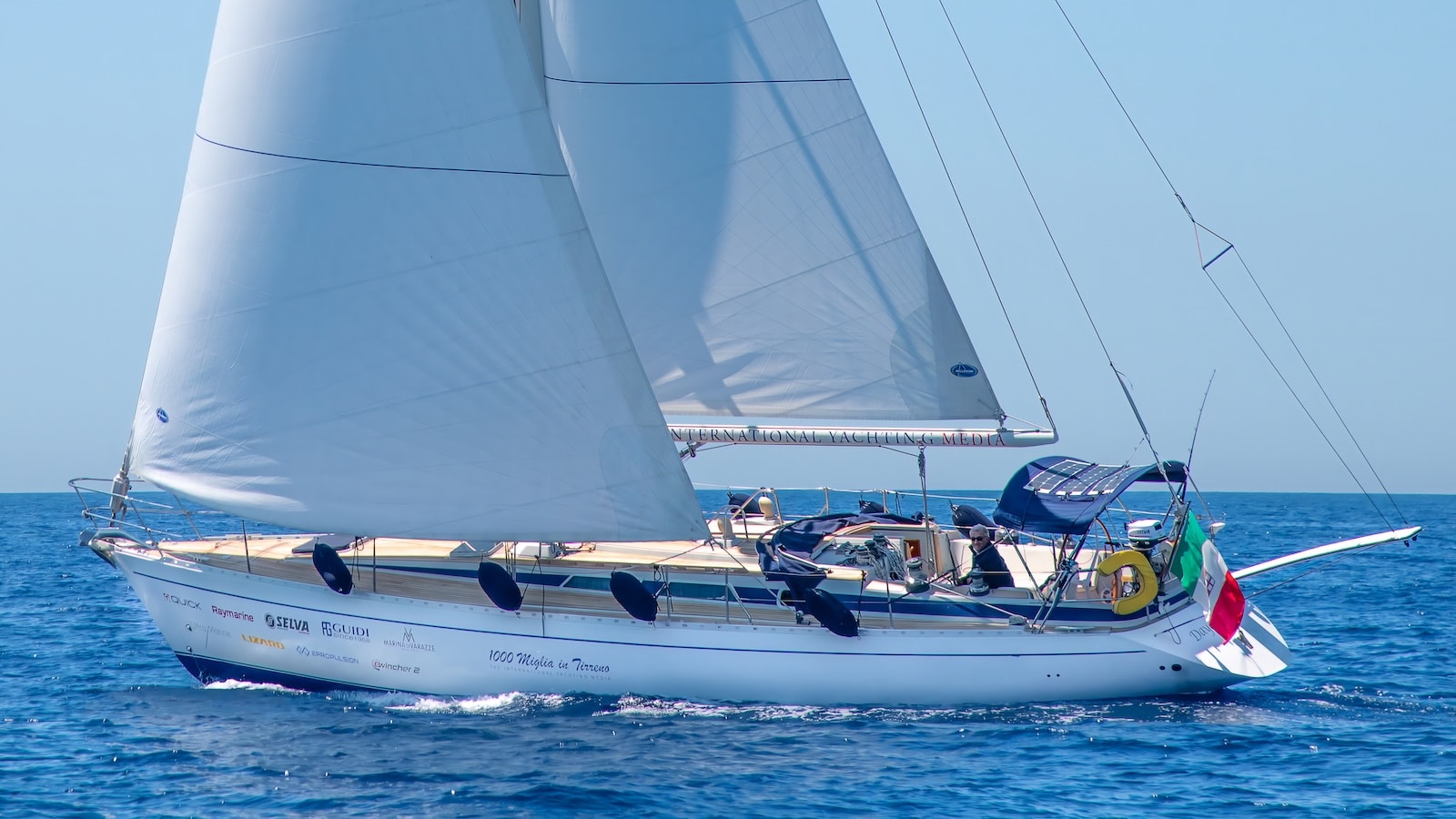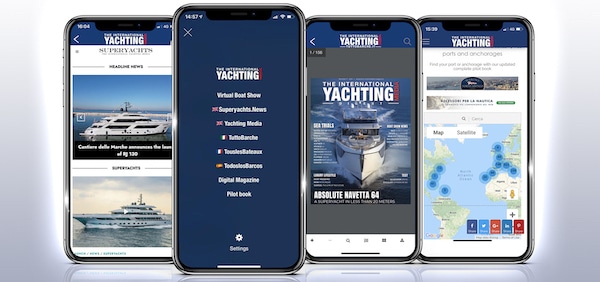The new RM lines, designed (as usual) by Marc Lombard, has made these hulls thiner, more elegant and with a lither design. The first RM models were in fact more radical, conceived for all customers used to sail a lot and all around the world. The philosophy is always the same but a little softened and models are more “all-round”: big navigations but for a more Mediterranean use.
RM 1070 follows RM 1060 and 1050. It has been planned according to new market requests. Today, in fact, most of shipowners desire a double wheel (the rudder tiller was a must on all RM models some years ago; today it is a request) and a real cabin below deck instead of a fore V-shaped berth.
As regards appendixes, RM 1070 can have one single or two keels or a tilting one, one or two rudder blades. The difference between a double-keel sample and another one with a tilting keel is very small in terms of speed, unless you sail upwind and with light air; in this case the boat provided with a tilting keel is faster. Below, here is a comparison table.
Hulls, always fast and marine, has maintained their typical triple corner and construction technology: marine composite and epoxy resin for the hull; a sandwich of fiberglass for the deck (it is covered with some marine composite inside for a better finishing and insulation)
RM 1070 with tilting keel
Deck
The poop is large, very large to the point that the double wheel is appropriate even to a 10-metre-boat. The hull has a strong personality with a high fore sheerline decreasing to the poop. A line which distinguishes all the latest RM models.
The cockpit is huge, 3.40 metres long. Like in all RM models, jib winches are under the deckhouse halyards’ones, in an inner position of the cockpit; a solution – maybe not too comfortable – which allows to work at the genoa sheet in a very protected position. Here, there are some very long (170 x 49 cm) comfortable benches provided with an ergonomic seatback.
As a good sailing boat, non-slipping is excellent anywhere – the only small imperfection is the frontal window in front of the mast – gangways are wide and the bow-poop passage is made easy through the stays which are fixed on the sides and the deckhouse. On-board circulation is good, except for the cockpit, where, when the boat is swerved, you can miss some footholds.
In the fore zone, there is a bowsprit (another element very demanded today). Here, Marc Lombard has studied the same solution than on Imoca 60: the sheet regulating the sail tack runs from the cockpit to the deck and it doesn’t go to the bowsprit directly; it passes before through a clevis and then it raises again.
As regards stowage solutions, there is a big locker, divided into three different compartments, under the helmsman’s feet. The central compartment is dedicated to the raft.
Interiors
Interiors are clear and bright. A wide hatchway and three deep steps allow an easy entrance. There’s only one layout available: two berths and one bathroom. Dinette, kitchen and chart zone use the space in the ward-room equally. A frontal window in the deckhouse and two lateral ones offer a 180-degree-view.
The fore cabin, provided with a V-shaped berth, is separated from the dinette through a double door which, when it is open, enlarges the space. Some lateral wardrobes and a huge compartment under the bed offer a great stowage solution.
The two astern rooms form a huge beam (4 m). Just to give you an idea, Dufour 350 GL is 3.54 metres wide and JPK 1080 is 3.65 metres wide. In the cabin, the berth is low (only 33 cm off the ground) but there is always a good space above (the minimum height between mattress and ceiling is 85 cm). The bathroom is small and it is located next to a technical room hosting all the boat systems.
Heights are good in the dinette (184 cm) and in the astern zone (190 cm), while they are only 165 cm in the fore zone. There is enough space to stow and weights are well-distributed in the middle. Water tanks are located under the dinette benches (an additional tank will be placed under the fore bed), the battery is under the bilge, in a watertight zone, always at mid-boat. The entire bilge ismade of high quality materials.
Navigation
The boat we tested had a double keel, a single rudder blade and not excellent sails.
At first, wind was 20 knots and sea was calm enough.
We sailed with full mainsail and staysail ( it is standard on a fixed baby stay; furler is optional).
Balanced and stable, we sailed upwind at 7 knots and never too swerved. Good the passage on the wave and the cockpit stayed dry (below deck, you can’t hear a creacking). By bearing away and using gennaker, acceleration was immediate and determined and we reached 10 knots. We were impressed by its stability and simple management. The rudder is precise. We had a German-style mainsail, a very useful optional to set sail well and easily; the sail isn’t small (36.2 sq.m) and you can work a lot between sheet and carriage.
At the end of the day, wind was weaker and we unrolled the genoa. The foresail babystay is rather far from the jib’s one and you can turn without rolling the sail. You only have to be a little patient and let it pass over the baby stay before hauling on the new tacks.
The boat impressed us for its agility and speed, it uses its powerful lines very well and it is fast even if you sail upwind.
Sailing with it will be only a pleasure.
Technical Data
| Hull length | 11.44 m |
| Floating length | 10.50 m |
| Width | 4.00 m |
| Immersion | 1.68/2.05/1.15-2.92 m |
| Sail area | 75.20 mq |
| Displacement | 4,900 kg |
| Volvo engine | 30 hp |
| Fuel Tank | 80 l |
| Basic Price | 155,000 Euros |
| Project | Marc Lombard Design Group |
| Builder | RM Fora Marine |












